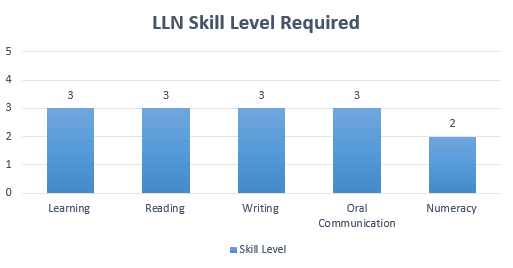Working in the hospitality industry, it’s really important to understand the fuller impacts of alcohol consumption and what causes a hangover. Regardless of how much alcohol a person consumes, they are going to be affected in some way whether they can feel it or not. Consume just one or two drinks, and while body will be working to process the alcohol and excrete it from the body, you may not feel any affects of a hangover. However, as the number of drinks rises, the chance of experiencing a traditional hangover increases.

As an employee who serves alcohol, you may have you seen someone slurring his or her words or swaying at the bar and thought to yourself, “that person is going to have a monster hangover in the morning”? At this moment your RSA (responsible service of alcohol) (SITHFAB201 – Provide responsible service of alcohol) training should kick in, because they have clearly had enough to drink and it’s time to calmly and politely refuse them any further service.
As an RSA professional, it might be worth knowing what causes a hangover, even if it’s just to make small talk with a customer. However, it will also give you a valuable insight into the effects of alcohol on the body with every additional drink a patron is served throughout the evening.
What causes a hangover?
Scientists call hangovers veisalgia, but no-one knows for sure what causes them! The reality is a hangover is a combination of a number of reactions going on in your body, and the severity of the hangover is often relative to the amount of alcohol consumed. So what are these reactions?
1. Dehydration
The headache and bloodshot eyes are caused by dehydration. Ethanol, the pure alcohol component of an alcoholic drink, is a diuretic causing you to urinate out more liquid than you retain. Dehydration causes the brain to shrink, hence the headaches, which leads to blood vessel dilation to increase blood flow and oxygen, hence the blood shot eyes. But this blood flow reaction causes the lining of the brain to swell, which equals more headaches and pain. Lose-lose!
2. Inflammation of the stomach lining
The sickness and nausea you feel is from alcohol hindering the digestion process in the stomach. Ethanol inflames the stomach, increasing production of gastric acids, and pancreatic and intestinal secretions.
3. Acetaldehyde production
The sweating, flushes, more nausea and possible vomiting you experience is from a nasty toxic biproduct of alcohol metabolisation in the liver called acetaldehyde. It’s 10-30 times more potent than the alcohol itself!
4. Congeners
During the fermenting process, congeners are produced along with the desired ethanol. These compounds include methanol and other types of alcohol, and contribute to the taste and aroma of the drink. Darker drinks (bourbon, whisky, red wine) have more congeners than lighter drinks (gin, white wine, vodka), so may result in a more severe hangover. Multiple congeners from mixing drinks also causes a more sever hangover.
Is there a hangover cure?
As much as we’d like to believe there’s a magic pill or trick to cure a hangover, the truth is nothing can stop the inevitable consequences of a few too many drinks. However there are ways you can avoid a hangover, or reduce the amount of discomfort you will feel the following day.
1. Don’t drink
If you truly don’t want to feel the affects of a hangover, don’t drink.
2. Drink lots of water
In between every alcoholic drink, have a glass of water or some other non-fizzy drink (carbonated drinks accelerate the absorption of alcohol). When you’ve had your last alcoholic drink, have a glass of water or two before going to bed. While this won’t prevent dehydration, it will reduce the impact and severity.
3. Eat well before drinking
Eating a meal high in carbohydrates and fats will slow down the absorption of alcohol into your system, giving your liver more time to process the ethanol.
4. Choose light over dark
Light drinks have fewer of the impure congeners found in alcohol that influences the severity of the hangover.
5. Headache tablets
Paracetamol-based painkillers can help reduce headaches, but aspirin can irritate the stomach and contribute to the nausea.
6. Eat friendly foods
Eating the following day is vital, so make sure you consume stomach-friendly foods such as soups filled with vitamins and minerals, and sugary sports drinks.
Your RSA actions
While RSA legislation is designed to protect the individual and those around them in a licensed premises, it has the added benefit of reducing the severity of tomorrow’s hangover. So while ensuring your customers have a great time, you could also be doing them the added favour of alleviating the affects of their drinking, win-win!
Just use some of the information above, including the tips for reducing a hangover, and you may end up being the customers’ most popular member of staff, and score yourself some pretty sweet tips as a result.
Complete your RSA Course online and obtain your competency card without delay!



